For over a decade...
our field teams have listened to the needs of our partner communities, responding in pragmatic ways to develop transformative approaches for catalysing and sustaining locally led marine conservation.
Our mission is urgent and critical
Our conservation models are designed to engage local communities by demonstrating that effective management improves food security and makes economic sense.
Temporary fishery closures targeting key species during periods of rapid growth result in bigger catches and bigger incomes for fishers, often sparking more ambitious conservation efforts…
…like locally managed marine areas (LMMAs), which sustain local fisheries and safeguard marine biodiversity.
“This [LMMA] model benefits not only biodiversity but also local communities, by ensuring their food security and empowering them to be crafters of their own future.”
President Hery Rajaonarimampianina of Madagascar
Our unconventional journey in conservation began through listening.
We learned that people in Velondriake, Madagascar’s first LMMA, thought that fish stocks would collapse without improved access to family planning. We also saw that we were ideally positioned to address this unmet need.
In partnership with specialised health agencies, we started supporting local women to offer community-based family planning services in their villages, integrated closely with local marine conservation initiatives.
This empowers women to get involved in fisheries management, and enables coastal communities to live more healthily and sustainably with their marine environment, building resilience to climate change.
“A model for everyone working to conserve the life-support systems of our troubled planet.”
Sir David Attenborough
We’re also supporting coastal communities to diversify their livelihoods, developing lucrative sea cucumber and seaweed farms as a way of reducing fishing pressure and generating new income.
From school scholarships and environmental education through to marine science courses, our team works tirelessly to deliver training at all levels.
Our multi award-winning dive expeditions offer international volunteers the opportunity to contribute to our work in Madagascar and Belize, and help fund grassroots marine conservation efforts.
Once we’ve developed a model that works
we help communities to share their experiences and support adoption by others. We have toolkits that enable partners to replicate our models, and disseminate what we learn through our networks.
“We’ve demonstrated that the right incentives can mobilise coastal communities, giving us new tools to scale and sustain marine conservation efforts.”
Dr Alasdair Harris, Executive Director, Blue Ventures
we're a unique conservation team
We’re resourceful and creative.
We have high standards and aren’t afraid to be self-critical.
We’re prepared to take risks and challenge broken paradigms.
We’re increasing our efforts to share our experiences and models with partner organisations and communities, with the aim of reaching 3 million people by 2020.








